When’s the last time a landscaping crew snuck up on you while blowing away your leaves or grass clippings?
We’ll pause while you think about it.
So, never? Those gas-powered backpack blowers are so loud they make your dog maniacally barking at squirrels seem quiet.
Landscaping noise pollution is a big issue. So big, some cities and communities are completely banning those ear-splitting gas-powered backpack blowers.
Level Green Landscaping crews are making things quieter, reducing landscaping noise pollution by using quiet electric blowers and other equipment.
Bonus: these environmentally friendly tools reduce other landscaping environmental impact, too.
Take out those earplugs and let’s take a look.
“There are No Noise Complaints”
Level Green was ahead of the game three years ago, equipping two of its Washington DC crews with all battery-powered equipment— backpack blowers, string trimmers, edgers and mowers. Today, all 15 DC branch crews use electric backpack blowers, complying with a new local ordinance to reduce landscaping environmental impact.
Washington DC mayor Muriel Bowser signed a bill in 2018 banning the use of gas-powered leaf blowers, which went into effect Jan. 1, 2022.
“We’ve been at the forefront of this,” says James Kole, DC branch manager at Level Green Landscaping. “We’ve had electric crews for three years. The benefits are huge.”
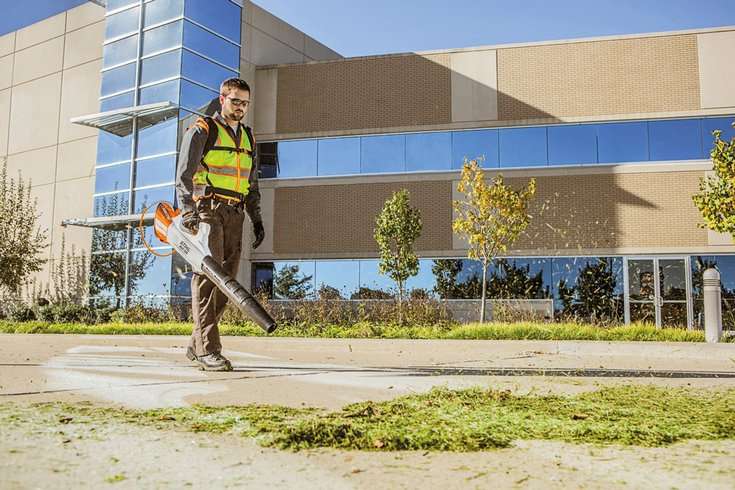
The environmentally friendly battery equipment uses advanced Lithium-Ion battery technology that’s quiet, reducing annoying landscaping noise pollution, which has been a huge issue in DC.
Landscaping crews working in the city are working right next to our customers’ offices or on their roofs. While gas-powered tools are loud and a nuisance, the battery-powered equipment, well, you could take a nap while your landscaping crew blows away your grass clippings right outside.
“They’re much quieter,” Kole says. “There are no noise complaints. Everybody noticed the gas-powered backpack blowers, especially during leaf season. We don’t have complaints anymore.”
Bonus: Fewer Emissions
Battery-powered equipment adds no polluting emissions to the air like gas-powered tools do — another win for reducing landscaping environmental impact.
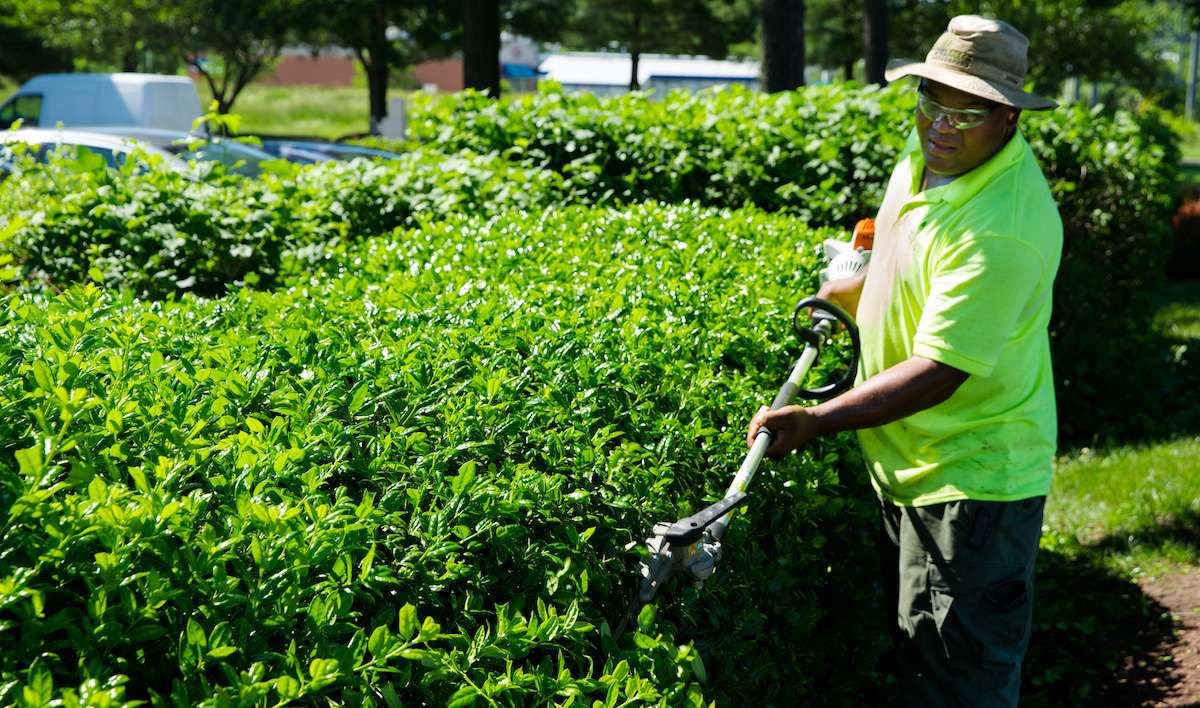
When you think about the gas emissions from the landscaping blowers and mowers on your property, it might not seem like a big deal.
Then multiply that by all the landscapers around the world. It’s big.
Landscaping Noise Reduction: The Challenges
Landscaping crews had to learn how to adapt to the new equipment, Kole says, from making sure they had enough batteries along to figuring out what power setting to use for each job.
“The higher the setting, the less battery time you have,” Kole says. “If you’re just blowing grass clippings, you don’t need it on the highest setting, and you’ll have more battery power.”
Bonus: “Crews love that they don't smell like gas anymore,” Kole says.
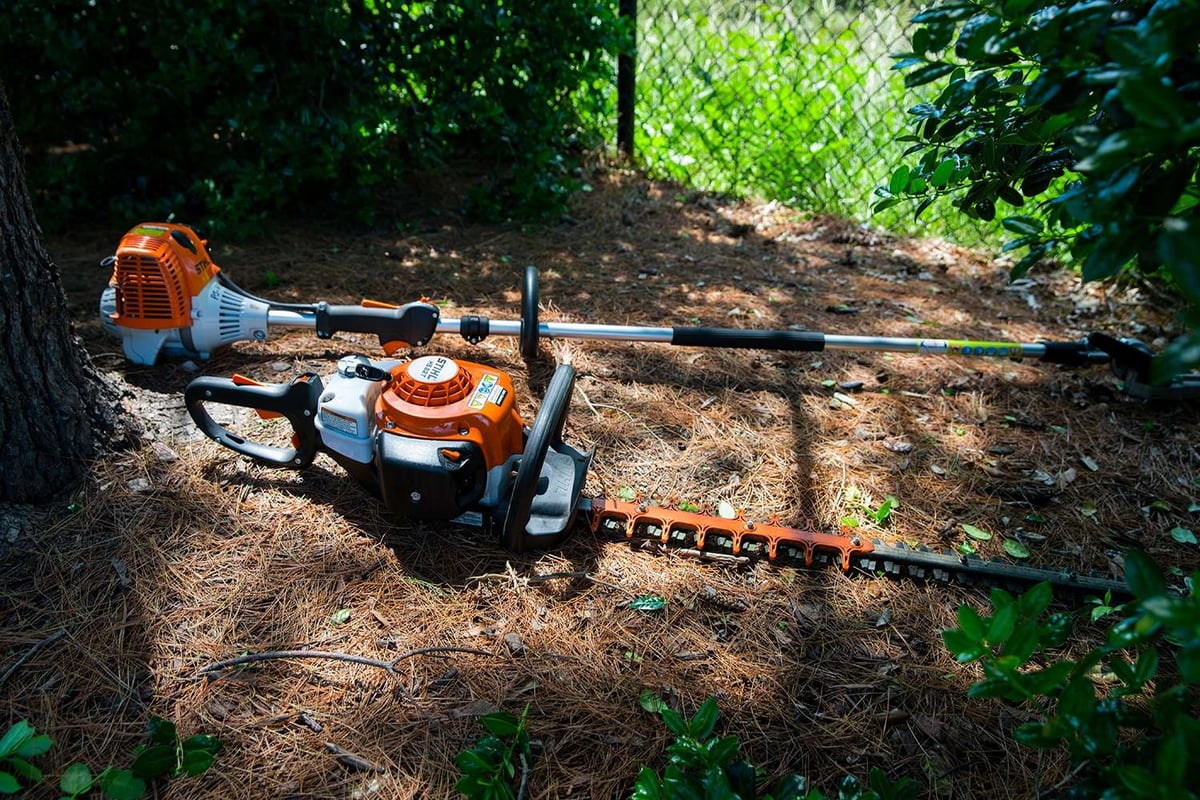
The switch to electric equipment also means figuring out how to charge them — on a big scale.
“We have to upgrade our facility to accommodate charging all the equipment,” Kole says. “It will require an entirely new power source.”
If you charge landscaping equipment from a 110 outlet, the charge time could be 12 hours. But crews may not have 12 hours between the time they charge them and the time they need them again the next day.
So each equipment trailer needs a more powerful 220 outlet. It’s a sizable expense.
More landscaping environmental policies are undoubtedly coming, Kole says.
“We’re preparing now, because the future will be all electric,” Kole says. “It will be a big change for the industry. It costs money now, but it will pay off.”
Landscaping Environmental Impact: Weed Control
Noise pollution isn’t the only landscaping environmental issue.
Potent weed killer glyphosate, the main ingredient in Roundup, is increasingly being banned because of its potential link to cancer in humans; potentially causing the death of important insects like bees; and damage to ecosystems by disrupting the natural food chains and plant pollination.
Montgomery County, MD has banned the use of glyphosate and some pesticides on private lawns, at childcare facilities, and playgrounds, part of a growing trend in environmental landscaping policies.
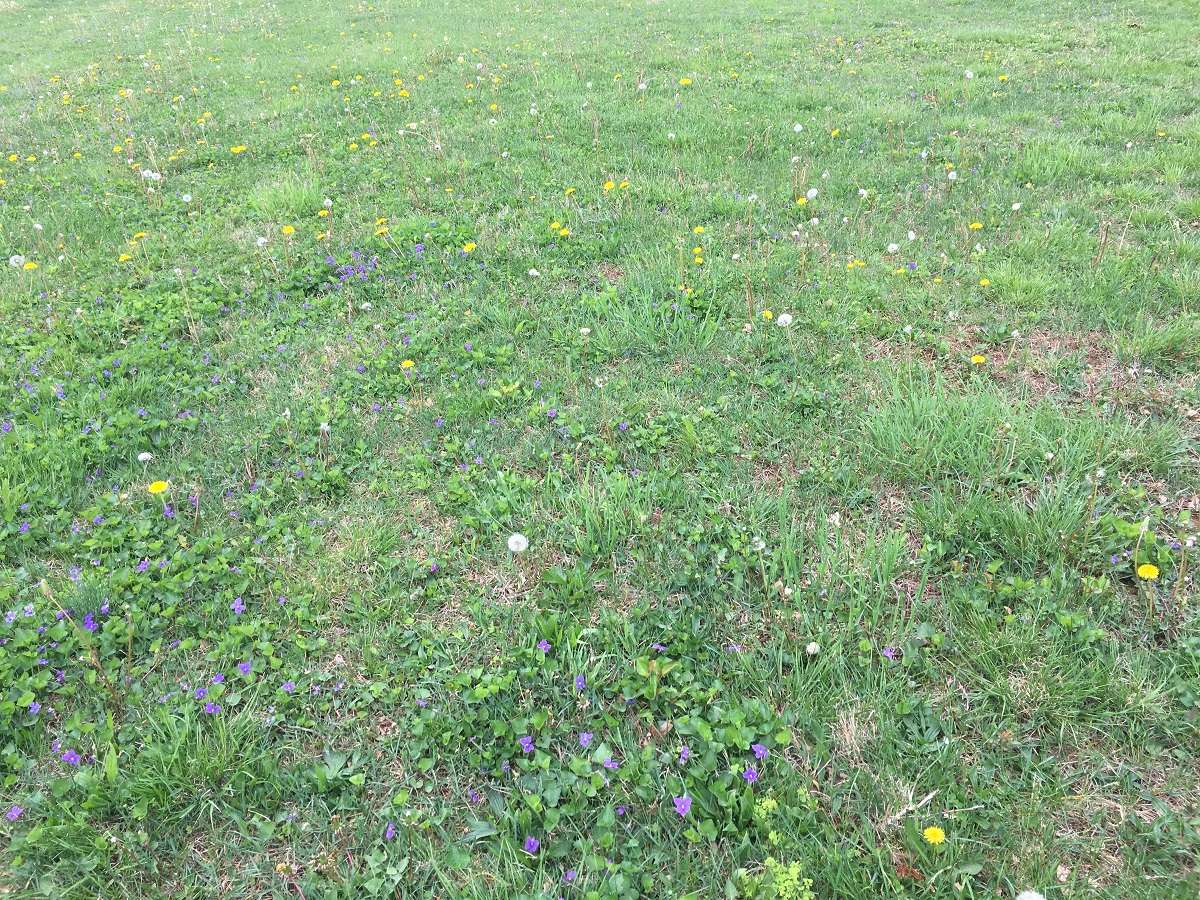
Level Green is working with the University of the District of Columbia to try out an organic weed killer that’s safer for the environment, Kole says.
“This is one tool to reduce our pesticide usage,” he says. “When I started out in this field the goal was just to spray everything. But we don’t need to put chemicals everywhere. We want to use only what’s necessary.”
Organic weed control is challenging, he says. It’s expensive, and it doesn’t always work.
“There’s one organic product that kills weeds but it doesn’t kill the roots, so the weeds come right back again,” he says.
“You have to be willing to not see instant results,” Kole says. “With traditional spraying, weeds are gone in a day. When you use organic products, it might take a week.”
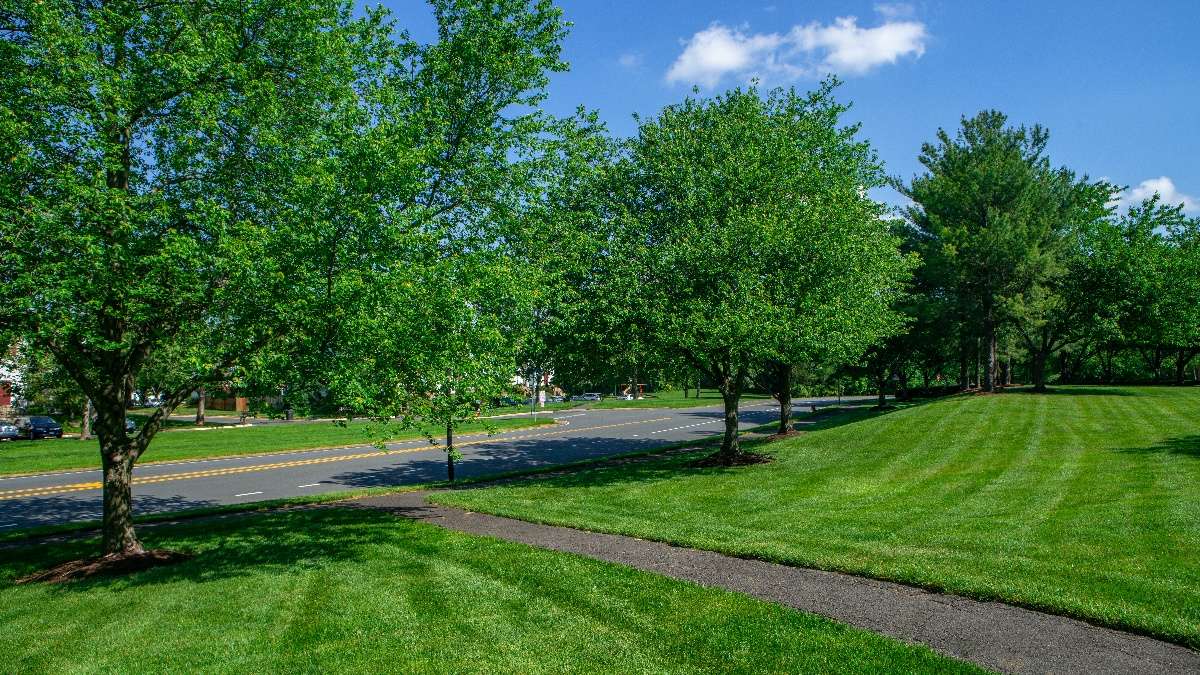
Why go organic?
“We want to serve all of our customers, and some of our customers want to go this way,” Kole says. “Our motto is ‘Do the Right Thing,’ and we want to do that for our customers and the environment.”
Join Level Green in an Environmentally Friendly Future
When you consider electric-powered landscaping equipment and safer weed control, the choice for the earth is clear.
We’re excited to take these next steps in environmentally friendly landscaping.
Want to join us?
If you’re not already a Level Green Landscaping client, we’d love to add you to our growing list of happy customers.
Our focus is on commercial properties like offices, mixed-use sites, HOAs, municipalities and institutions in Maryland, Washington DC and parts of Virginia.
Contact us at 202-544-0968.
You can also request a free consultation online to meet with us one-on-one.
We’d love to hear from you.


